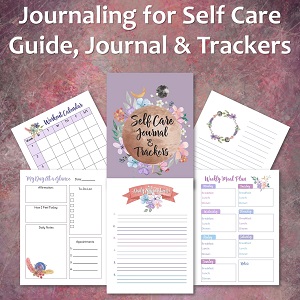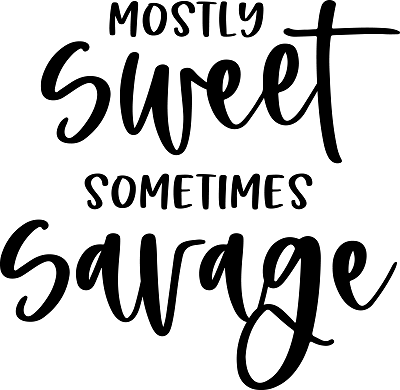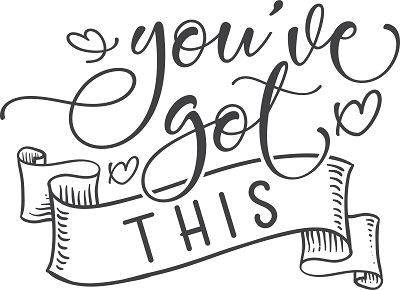 With the
With the impending arrival of 2019, now is the perfect time to plot your course for self-improvement. By deciding that you’re going to follow this 10-step plan, you can start the New Year on a positive note and the improvements you make will change your life for the better.
1 – Begin with Self Care
Self-care is a practice that seems foreign to most people. Probably because most have been taught to put themselves last and take care of the needs of others first. That’s backwards thinking, because you can’t help anyone else until you first help yourself.
Start by letting go. Too many people hold onto doing things because they feel guilted into it. They handle issues or deal with other people’s tasks that they really don’t want to be doing in the first place.
It’s hard to decline invitations you don’t want to accept – or stop doing things that people you care about want you to do, when you don’t really want to do them. It can be hard to even say no to yourself.
That happens when you have a mindset, a sort of mental checklist, of what you “should” do. For 2019, decide that you’re going to say no to handling or doing anything that you really don’t want in your life.
It’s okay to skip the big family meetings that end up with someone angry at someone else – or to say no to the coworker who pushes his work off on you. Free yourself to say no to yourself when you feel you “should” stay late at work to finish something up for the good of the company, even though you’ve been breaking your back for months and ignoring your own needs.
You need to put what’s best for you first regardless of what else you have to let go of.
Making sure that you take care of your physical self is part of self-care. That means taking the time to plan healthy meals and snacks, not skipping meals, and not rushing through your food so you can get back to work or take care of something for someone else.
Taking care of your body with exercise is part of self-care. You don’t need to have a goal to lose weight in order to use exercise in your plan. Exercising relieves stress and lifts your emotions.
You need it just because it benefits you. Don’t give up sleep to get on the never ending hamster wheel of work or day to day tasks. The next day, the work or those tasks will be right where you left off – but you’ll feel more prepared mentally and physically to tackle them.
It won’t benefit you to lose sleep in an effort to keep up or get ahead. Instead, do what you can with the time you have and allow that to be good enough for you. Build in times where you’re off the clock professionally and personally.
Just have some fun. Do something that feeds your soul. Take a trip. Do nothing. Read a book. Go to the movies. Visit a friend. Nurturing yourself – your happiness – is an important part of self-care.
2 – Let Go of Self Defeating Habits
Sometimes people hold onto a habit simply because it’s something they’ve always done or a way they’ve thought for years. An example of this would be wanting to save money and get control of your finances, but consistently blowing your budget on spur of the moment purchases.
You might think one way and even acknowledge out loud that you want change, but then you turn around and give in to actions that sabotage your desires. You know what you’re doing (or not doing) that’s holding you back from having your best life.
It’s not comfortable confronting the worst part about yourself. But if you don’t acknowledge what’s going on with you, then you won’t be able to change it. Acknowledging that self defeating habit is where you begin.
Recognize how it’s holding you back from meeting your goals. If you want to go on a nice vacation, but you’re always spending your vacation fund, then you’re sabotaging your goal.
Once you identify what that self defeating habit is, you can move into self improvement by modifying that behavior. You do this by creating replacement habits. If you have a problem with overspending, then challenge yourself to go one week without buying anything except necessities.
Then add a second week – then a third. Identify any possible obstacles and have a plan to conquer them. If your friends want to go out shopping, suggest a no cost alternative such as getting together to watch a movie at home. You can improve anything about your life as long as you identify the problem and have a solution ahead of time.
3 – Learn a New Skill
When you learn a new skill, it betters you as a person. It fills you with confidence that you can accomplish whatever you set your mind to. These skills can be something like learning how to better manage your time.
So many people miss chances to grow as a person because of poor time management – because of how their day is stretched for time. They often overlook opportunities that come their way or immediately dismiss them thinking they can’t possible juggle anything else.
Learn how to practice kindness. This type of self improvement benefits you because it reduces stress. It’s important to show kindness to others, but it’s equally important to show it to yourself.
Let yourself off the hook rather than beating yourself up when you make a mistake.
Master the art of being honest with yourself. When you don’t call out your behaviors that prevent you from improving, then you end up stuck. If you want to grow, you have to stop coddling anything that you don’t like the thought of facing up to.
4 – Develop Your Leadership Potential
Everyone has leadership potential. Some people are outgoing, strong leaders while others lead quietly. You want to develop your leadership potential as part of your self improvement – not necessarily because you want to go into leadership, but for the benefit it will bring to you.
One benefit of developing your leadership potential is that you can use the strength it brings to improve your life. This will help you know your strengths, recognize your weaknesses and how to make both work for you.
With leadership self improvement, you command your life – and that always leads to the ability to take whatever action steps are necessary to be a better you. Developing this kind of self improvement lets you stick to your values and gives you the discipline to achieve success.
It also inspires and empowers you. Another benefit of this type of self improvement is that it boosts your belief in yourself and in your ability to make whatever changes are needed in your life on an ongoing basis.
5 – Set Boundaries
Boundaries are the limits in which people live their lives. They’re based on what you’re not willing to put up with in a situation or with another person. Setting a boundary means you set constraints on what’s acceptable.
These constraints can refer to what you’ll accept for your emotional or physical self. When you have a boundary, it feels a lot like self care – because it is. It means that you recognize that what you need to be whole and healthy is equally as necessary as what others may need.
Boundaries are meant to protect your space. It means that your opinions don’t change just because someone else thinks differently. An example of this could be a woman who doesn’t want to be around someone who’s always creating family drama, so she doesn’t put herself around them.
Another relative thinks that behavior should be tolerated, and tries to nag or belittle the woman into believing the same way. Having boundaries means saying no when something crosses the line of what’s okay with you.
It might be something such as telling an ex that it’s not okay to keep calling. Or it could mean letting people know they can’t just drop by your home without an invitation. A boundary stops you from being used and it shuts down mistreatment.
If there’s a coworker who thinks it’s okay to scream at people and you tell him you’re not going to engage in a conversation when that kind of behavior is present, then you walk away, that’s a healthy boundary.
Sometimes your boundaries may make people uncomfortable, but that’s their issue to overcome – or not. When you set boundaries, you establish the way that people are allowed to treat you. When you don’t set boundaries, you can get treated in ways that aren’t good for you.
6 – Take Risks
It’s human nature to reach a comfort point and stay there. This can happen in every part of your life. You can reach a certain point with your weight, your health, your finances and your relationships and you settle in for the long haul because change is risky.
It means you may have to stretch. You may have to reach outside of your comfort zone. Usually when people are challenged to step away from what’s familiar and leave it behind, they begin to backpedal.
You might list dozens of ways why it’s better to stick with what you know than make the leap into the unknown. You may have wanted to lose weight and you’ve wanted it for a while now, but it would mean some major changes to reach that point of self improvement.
So you don’t do it because your partner isn’t on board. Without support, you just don’t see how you could accomplish it anyway – so you don’t make that move. You don’t take that risk.
What you have to realize is that if you put off risk, if you keep on living the way you’ve been living up until this point, then nothing will ever change. Self improvement is about change.
That thing that you’ve put off doing out of fear, out of weighing the risks and falling back into old habits – is probably the very thing that would change your life and put you on track to realizing your dreams.
7 – Give Up Procrastination
Procrastination is a barrier to self improvement. You’ll start the diet tomorrow. You’ll set boundaries after this next family vacation. You’ll change your negative habits when you have more money, time, or a better life situation.
Procrastination is really fear that’s just all dressed up. You don’t embark on a self improvement course because you fear that you’ll fail. You don’t want to get your hopes up, so you do nothing.
Maybe you’re worried that you’ll become the object of criticism or that you’ll get rejected by people you care about if you change something about yourself. When you give in to procrastination, it means you’re putting success on the back burner.
You might think you’re not making a choice one way or another, but you are. Not making a choice is actually making one. So that thing that you want to improve about yourself?
Stop putting it off. The lack of action on your part is eating away at your self confidence. It’s undermining your success and you were meant for more in life than what you’ve allowed yourself to have.
You know why you procrastinate? Because of where your focus is. When you focus on why you can’t change something or why it might not work to do something, you see obstacles the size of mountains. When you focus on the all the ways the change will make your life better, you see possibilities.
8 – Have a Growth Mindset
This is needed to put an end to everything that’s ever held you back from improving your life. With just your mind, you can determine how your day is going to go, how you’re going to feel about the situations you encounter and your overall outlook about your future.
When you have a can’t do mindset, that attitude is never stagnant. It develops and grows until it reaches the point of mental vines that wrap about your self-confidence, your abilities or talents and your desire to change something.
Then you end up feeling stuck just as you are. You begin to believe that change is what works for other people – not you. You can develop a growth mindset by having a purpose for your self improvement.
Change what’s in your ability to change, but learn to accept the imperfections that you cannot. Be tenacious. Let obstacles or failures be a teaching moment and not the end.
Open yourself up to new approaches for achieving success along your journey. Cultivate a positive, can-do attitude.
9 – Be Mindful
When you’re mindful, it allows you to see what’s good about you and your life already. Being mindful lets you free yourself from the things that hold you back from where you’ve been.
For example, being mindful can help you recognize that just because your journey of eating healthy didn’t end well in the past, it doesn’t mean that’s your life now. You can free yourself from the hindering thoughts of what used to be.
Being mindful can help you to stop projecting your life on the foundation of what-if, which is what occurs when people look ahead. Tomorrow isn’t here yet – all you have is now.
By living in the present, you open your life up to the opportunities that are right in front of you rather than looking back at mistakes or ahead to what may or may not happen.
Mindfulness allows you be fully present.
It lets you tune in to yourself so that you’re conscious of the experience before you. You’ll be more open to your emotions without judgment. This helps you to work on whatever you choose as part of your self improvement journey without beating yourself up for the strides you think you “should” have made. Instead, you’ll be able to praise yourself for what you’ve accomplished in the moment.
0 – Make Better Choices
A winning way to embark on a self improvement journey is to make better choices. People sometimes make choices without realizing they’re making decisions that are going to affect their lives in the long run.
You may have a long history of poor choices in how you’ve tried to take care of yourself, but that doesn’t mean it can’t change in 2019. Start by using both logic and emotion when you make a choice.
Whatever it is you want to do, look at the pros and cons – but then also check in to see how you feel about it. If you have knots in your stomach, that can be a good sign that there are problems with your choice.
That doesn’t necessarily mean it’s a wrong decision. It could just mean that you don’t feel ready for that decision. So you have to really tune in to what you’re thinking and feeling each step of your journey.
Don’t let popular opinion sway your choice. Just because something looks good to the masses doesn’t mean it’s good for you. Check to make sure the decision is in line with your beliefs about yourself and life.
Weigh the consequences of your choice, both short and long term. It’s easy to make a decision on the fly, but knowing what’s going to happen in the long run with that choice could sway your mind.




